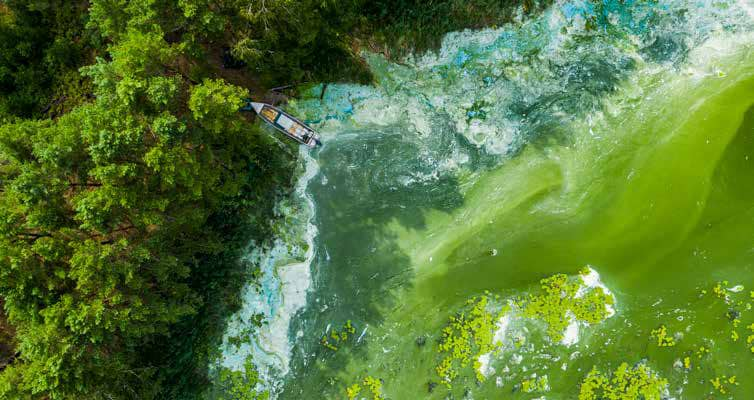Climate Change
NCEZID studies raise concerns about health threats from climate change

Climate change is causing milder winters, warmer summers, and fewer frost days. This change in climate makes it easier for many animals, mosquitoes, ticks, and the infectious diseases they spread to expand into new geographic areas and infect more people. Scientists at CDC are conducting surveillance to study the impact of climate change and track the spread of infectious diseases, including Lyme disease and West Nile virus disease.
With increasing temperatures
- Animals that carry ticks, such as rodents, deer, and racoons, are expanding their habitats. The warming climate means that ticks emerge and start biting earlier in the season than ever before. NCEZID has increased support to states to improve tick surveillance and reporting. As of August 2021, 26 states are reporting tick surveillance data to CDC.
- Harmful algal blooms (HABs) that grow in fresh or salt water can have big impacts on the economy and environment. Toxins from HABs can make people and animals sick through seafood or water. In 2021, NCEZID released surveillance data on HABs and illnesses, using it to help educate the public and the medical community about this growing public health threat.
- Fungal diseases like Valley fever are spreading to northern areas of the US that were previously not suitable climates for fungi to survive. NCEZID houses one of the few public health groups in the world devoted to preventing and controlling fungal diseases. In 2021, NCEZID worked with partners to better understand where fungal diseases pose the biggest threats, how fungi are becoming resistant to drugs, and how they negatively affect the health of Americans.
NCEZID scientists are working to understand the harmful effects of climate change on the public’s health and are poised to respond to this growing crisis.
NCEZID is part of a national effort to protect the public’s health from the harmful effects of climate change on infectious diseases.
